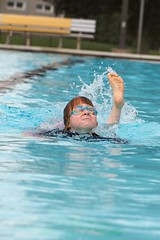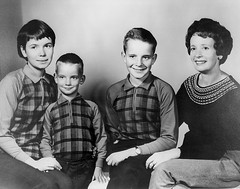Are organized youth sports good for kids?
I’m struck by the contrast between a culture that seems to value athletic success above all other types vs. the epidemic levels of obesity. While both parents and kids can be easily ‘swept away’ by dreams of big pro contracts I find myself wondering what impact this thinking might have on less-gifted athletes?
Are we inadvertently telling the athletes without “star quality” that they should just graba pizza and a a soda and take a seat on the sidelines?
Despite our sometimes skewed focus, I still believe the rewards of youth sports can certainly outweigh the risks — as long as the adults play nicely.
What are some of the benefits?
First, and probably far too obvious, is the fact that team sports can be a lot of fun. And with the right coaching kids can practice the teamwork, cooperation and mutual-support skills they need in… pretty much everywhere.
Then there’s all the discipline: not just showing up for practice on time but voluntarily accepting the leadership and authority of a team… and a league.
They’re part of something bigger than themselves and learn to face challenges together… to place team goals ahead of personal glory.
And when things don’t go their way? You can have some super discussions about values, fairness and respect. When they get benched (I hope) for some of the same behaviors they see by the professional athletes they admire so much? Talk about the “hows” and “whys” of picking people to look up to… and maybe about the example they are setting for younger kids.
And, whether you and your kids agree or disagree with the coach, you can have some super discussion about values, respect and, of course, both the positive and negative role modeling by professional athletes. (And kids’ opportunities to set examples for those younger than they are.)
Hmmm… an opportunity to make regular exercise a part of their lives…. learning to get along with others… and cool uniforms.
What are your thoughts on the pros and cons of involving kids in organized sports?



